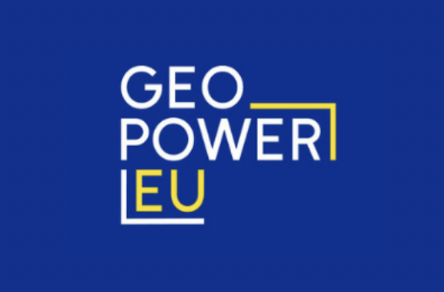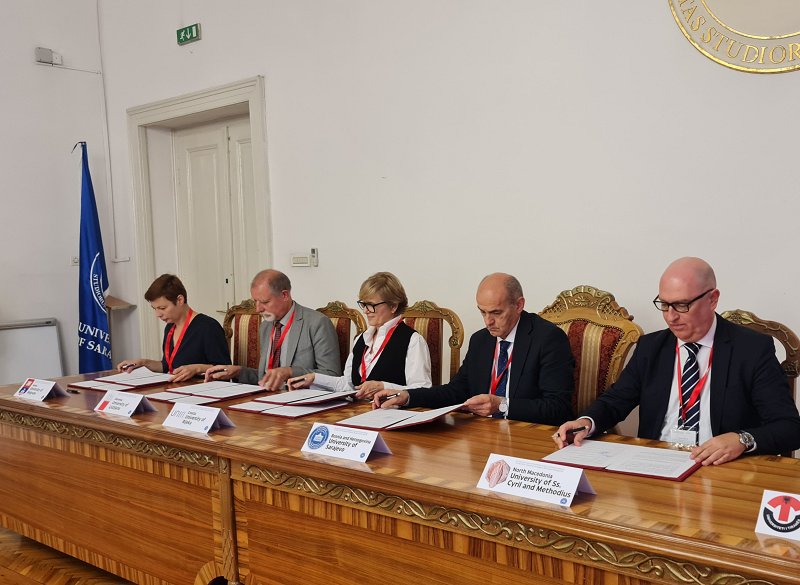Organizers: Center for Cultural Decontamination, Belgrade; The Institute for Philosophy and Social Theory, Belgrade and Center for Advanced Studies – South East Europe, University of Rijeka
Time and venue: Belgrade, 14 – 16. 12. 2017
Witnessing is a participative act, testifying is an act of speech with multiple addressees at one time, at the least those relating to the situation testified about, the situation of testifying and a self-address which constitutes multiple speakers. The simultaneity of time and space creates an ever-changing assemblage of singular-plural social relations, intimate and political, at work long after the testimony has been given and each time it is heard anew. The diversity of social relations at the base of testimony makes its relation to reality complex, both that experienced and that in which testimony is heard. This makes it unstable for the purpose of the listener whose demand is for The Truth i.e. a comprehensive meaning which would constitute the person testifying as Subject and/or as a generic Subject as well as constitute both testifying and testified factual situations as Events.
“In our European juridical tradition, testimony should remain unrelated to literature and especially, in literature, to what presents itself as fiction, simulation, or simulacra, which is not all literature. When a testifying witness, whether or not s/he is explicitly under oath, without being able or obligated to prove anything, appeals to the faith of the other by engaging himself to tell the truth — no judge will accept that he should shirk his responsibility ironically by declaring or insinuating: what I am telling you here retains the status of a literary fiction. And yet, if the testimonial is by law irreducible to the fictional, there is no testimony that does not structurally imply in itself the possibility of fiction, simulacra, dissimulation, lie, and perjury—that is to say, the possibility of literature, of the innocent or perverse literature that innocently plays at perverting all of these distinctions. If this possibility that it seems to prohibit were effectively excluded, if testimony thereby became proof, information, certainty, or archive, it would lose its function as testimony. In order to remain testimony, it must therefore allow itself to be haunted. It must allow itself to be parasitized by precisely what it excludes from its inner depths, the possibility, at least, of literature. We will try to remain [demeurer] on this undecidable limit. It is a chance and a threat, a resource both of testimony and of literary fiction, law and non-law, truth and non-truth, veracity and lie, faithfulness and perjury.” DEMEURE Fiction and Testimony, Jacques Derrida
Who testifies and to whom? What are the social relations created in, by and through language and what does language itself testify to? How does language relate to the time of the speaker, the spoken and the testimony? Assuming that presence is the core of testimony how does it relate to its actors? And how does presence become embodied and embedded in language or vice versa? How does the setting of testimony affect its procedure in different times and locations and do interrelations exist between these settings? Has the Holocaust become a paradigm for remembrance and what are its affects in different locations? Do poetry and prose offer a way in and out of testimony, memory and language itself? Holocaust poetry and prose have become canonized as the language of memory, how does it impact the remembrance of the Yugoslav wars and commemorations of other wars?
Conference Program
December 13th | 14:00 – Press Conference at the Center for Cultural Decontamination
Thursday, December 14th
Venue: Institute for Philosophy and Social Theory, 1st Floor (Kraljice Natalije 45, Belgrade)
10:00 – 12:00 | Panel 1: Paul Celan as Paradigm of Testimonial Reading and Writing
Chair: Sanja Bojanić
10:00 – 10:30 | The Testimony of Celan’s Manuscripts and Writings, Bertrand Badiou, Ecole Normale Superieure (FR)
10:30 – 11:00 | Paul Celan’s Dialogic Influences, Sue Vice, University of Sheffield (UK)
11:00 – 11:30 | Bearing Witness – One Language to Another, Pajari Räsänen University of Helsinki (FI)
11:30 – 12:00 | Panel 1: Discussion
12:00 – 12:30 | Coffee Break
12:30 – 14:00 | Paul Celan: Testimonies of Heimat (“Ort meiner eigenen Herkunft.” Heimat, Und Ich?), Petar Bojanic IFDT (SR)
14:00 – 15:00 | Lunch Break
15:00 – 17:00 | Panel 2: Paul Celan Today
Chair: Srđan Prodanović (IFDT)
15:00 – 15:30 | The Witness as Agent: Reflections on Paul Celan and Etty Hillesum, Michael Eskin, Upper West Side Philosophers, Inc. (USA)
15:30 – 16:00 | Denken und Gedenken: Reading Celan in the 21st century, David Coury, University of Wisconsin (USA)
16:00 – 16:30 | On the Edge of Text: Traumatic Disruptions in Language, Nina Čolović Linguist Researcher, Serb National Council/ The Faculty of Humanities and Social Sciences, Zagreb and Aneta Lalić, Department for Culture, Serb National Council (HR)
16:30 – 17:00 | Panel 2: Discussion
18:00 | Testimony: Truth or Politics – Exhibition Opening, Galerija-legat Milice Zorić i Rodoljuba Čolakovića (Rodoljuba Čolakovića 2)
Friday, December 15th
Venue: Institute for Philosophy and Social Theory, 1st Floor (Kraljice Natalije 45, Belgrade)
10:00 – 12:00 | Panel 3: Yugoslav Wars and Bearing Witness
Chair: Mónica Cano (CAS SEE)
10:00 – 10:30 | Fiction and Testimony of war, Asmir Kujović, Writer, (BiH)
10:30 – 11:00 | Testimony and Genre, Lidija Dimkovska, Writer (SLO/MAC)
11:00 – 11:30 | The Neo-Dada Face of Postmodernism: Manifest Mlade Bosne by Darko Cvijetić as a Protest against the Cultural and Generalized Disabilities of Yugoslavia at the Turn of the Century, Andrijana Kos-Lajtman, University of Zagreb (HR)
11:30 – 12:00 | Panel 3: Discussion
12:00 – 12:30 | Coffee Break
12:30 -14:00 | Poetry in the Throes of Transition, Senadin Musabegović, Head of the Department of History of Art at the Faculty of Philosophy in Sarajevo
14:00 – 15:30 | Lunch
15:30 – 17:30 | Panel 4: Rhetoric, Politics and Poetry after Yugoslav Wars
Chair: Olimpa Loddo (CAS SEE)
15:30 – 16:00 | The Sword and the Shield: The Uses of Poetry at the War Crimes Trial of Radovan Karadžić, the Poet-Warrior, Jay Surdukowski, Sulloway & Hollis / Senior Fellow Humanity in Action (USA)
16:00 – 16:30 | To War or to Write, Elizabeta Šeleva, Saints Cyril and Methodius University of Skopje (MAC)
16:30 – 17:00 | The Rhetoric and Politics of Testimony in the Novels of Svetislav Basara and David Albahari, Goran Lazičić, AU Institute for Slavic Studies University of Graz (AUT)
17:00 – 17:30 | Panel 4: Discussion
19:00 | Round table and poetry reading about the YU wars
All participants lecturing on the theme as well as David Coury
Moderator: Noa Treister (CZKD / Ucitelj neznalica)
Poets: Darko Cvijetić (BiH), Lidija Dimkovska (SLO/MAC), Andrijana Kos-Lajtman (HR), Senadin Musabegović (BiH)
Saturday, December 16th
Venue: Center for Cultural Decontamination (Birčaninova 21, Belgrade)
10:00 – 12:00 | Panel 5: Language and Representation of Yugoslav War
Chair: Davide Pala (CAS SEE)
10:00 – 10:30 | War and language, Olivera Marković-Savić, University of Priština (KM)
10:30 – 11:00 | Ethical side of the verse – from work to document, Šeherzada Džafić, University of Bihać (BiH)
11:00 – 11:30 | The Representation of War in the Performance Arts, Darija Davidović, University of Vienna (AUT)
11:30 – 12:00 | Memory-work Research: Silence and Borders in Oral Histories, Selma Zulić Šiljak i Lejla Somun-Krupalija, independent researchers (BiH)
12:00 – 12:30 | Panel 5: Discussion
12:30 – 13:00 | Coffee Break
13:00 -14:30 | Testimony and Defense: The Poetic Word and 21st Century Violence, Cornelia Grabner – UK Lancaster University
14:30 – 16:00 | Lunch Break
16:00 – 17:00 | Not Losing the Thread. Cruel January – A Month in the Life of Paul Celan, Bertrand Badiou
16:00 – 16:30 | Coffee Break
17:30 – 19:00 | Round table about the poetry of Paul Celan
All participants on the theme as well as Robert von Hallberg, Matthew Boswell
Moderator: Alexander Pavlović (IFDT)
20:00 | Concert – Onaj Dječak
Sunday, December 17th
Venue: Center for Cultural Decontamination (Birčaninova 21, Belgrade)
10:00 – 12:00 | Panel 6: Conflicts in Peripheral Capitalism
Chair: Mišo Kapetanović (CAS SEE)
10:00 – 10:30 | Global Resonances and the Movement for Peace with Justice and Dignity in Mexico, Cornelia Grabner – Mexico, Lancaster University (UK)
10:30 – 11:00 | Testimony and U.S. Poetry, Robert von Hallberg, Claremont McKenna College (US)
11:00 – 11:30 | Constructing the “new” Yugoslav woman: a testimony/testament of emancipation at the end of WWII, Danijela Majstorović, University of Banja Luka (BiH)
11:30 – 12:00 | Panel 6: Discussion
12:00 – 12:30 | Coffee Break
12:30 -14:00 | Mahmoud Darwish- The Witness and the Testimony, Marzuq AlHalabi, Van Leer Jerusalem Institute (IL)
14:00 – 15:30 | Lunch Break
15:30 – 17:00 | Panel 7: Memorial Sites and Affects
Chair: Marco Abram (OBCT)
15:30 – 16:00 | Reading Genocide Memorial Sites in Rwanda: Eurocentrism, Sensory Secondary Witnessing and Shame, Matthew Boswell, University of Leeds (UK)
16:00 – 16:30 | Testimony in Times of Conflict: Reading Colombian Women Poets and Peace Activists, Cherilyn Elston, University of Reading (UK)
16:30 – 17:00 | Panel 7: Discussion
19:00 | Round table and poetry reading – Conflicts in Peripheral Capitalism
All participants on the theme as well as Michael Eskin and Jay Surdukowski
Moderator: Djurdja Trajkovic (IFDT)
Poets: Cherilyn Elston (UK), Marzuq Al Halabi (IL), Ramiz Huremagić (BiH), Asmir Kujović (BiH)
Other project partners are: The Ignorant Schoolmaster and his Committees, Belgrade; The Museum of Contemporary Art, Belgrade; Boem, Vienna, Austria; Osservatorio Balcani e Caucaso Transeuropa (OBCT Transeuropa), Rovereto, Italy; Historical Museum of Bosnia and Herzegovina, Sarajevo; the Faculty of Philosophy of the University of Sarajevo, Bosnia and Herzegovina; Centre for Cultural and Social Repair, Banja Luka; The Leibniz-Institute for East and Southeast European Studies, Regensburg, Germany
Further information at: http://svedocanstvo-imenovatitoratom.org/en/conferences
*The Conference will be held as part of the project TESTIMONY – TRUTH OR POLITICS: The Concept of Testimony in the Commemoration of the Yugoslav Wars.




